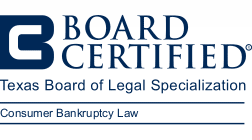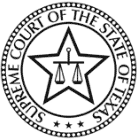Houston, TX Chapter 13 Bankruptcy Lawyer
Knowledgeable Bankruptcy Attorney Helping Clients Navigate Chapter 13 Repayment Plans
The Fealy Law Firm, PC has been helping clients resolve their serious debt issues for more than 25 years. Board-certified bankruptcy attorney Vicky Fealy strives to educate her clients on all their bankruptcy options so they can make informed decisions about relieving their debts. Popular among those options is Chapter 13.
Chapter 13 is referred to as a "wage earner plan," "debt reorganization," or "debt consolidation." Chapter 13 is often utilized to stop repossessions and foreclosures, but it can also effectively reorganize your debt load by lumping all your monthly bills into one monthly payment. You may find measurable relief with Chapter 13 because it:
- Immediately stops foreclosures and repossessions
- Is a valuable tool for consumers who have fallen behind on mortgage or car payments, as it allows them time to catch up on delinquencies
- Immediately stops levies, judgments, lawsuits and garnishments
- Immediately stops harassment and contact from creditors altogether
- May allow you to strip a second lien
- May allow you to "cram down" the amount owed on certain assets to fair market value
- May change the interest rate paid on certain debts
- Is a valuable tool for consumers wishing to consolidate their bills at a lower interest rate
- Helps consumers who are facing difficulties with the IRS
Benefits of Chapter 13 Bankruptcy
If you do not qualify for a Chapter 7 bankruptcy, Chapter 13 can be beneficial in restructuring debt to a manageable payment by eliminating or reducing interest. In a Chapter 13, you can propose a plan of reorganization to repay creditors all or a portion of the debt owed. Some debt will be repaid in full and, depending on the circumstances, some creditors may receive only a partial payment of the debt. Some debts are paid with interest, and some are not.
Your repayment plan may last from three to five years, depending on your specific circumstances. It is important to consult with an experienced attorney to determine if you qualify for Chapter 13 and to learn how a repayment plan would be fashioned for your specific circumstances.
Frequently Asked Questions Regarding Chapter 13 Bankruptcy
Here are answers to some questions you might have about Chapter 13:
Chapter 13 Bankruptcy FAQs
Is Chapter 13 a Good Option if I Have Significant Student loans or Other Debt That Cannot Be Discharged in Chapter 7?
Answer: As discussed elsewhere on this site, not all types of debt can be discharged in bankruptcy, including student loans, child support, and back taxes. If these are a large portion of your debt portfolio, it may not make sense to pursue a Chapter 7 bankruptcy.
Chapter 13 is a better option in these cases, because you can reorganize these debts into a manageable and sustainable repayment plan. By receiving more favorable repayment terms, you have a much better chance of becoming current and staying current on these debt payments.
Because I Am Repaying Debts, Will Chapter 13 Bankruptcy Damage My Credit Record/Score Less Than Chapter 7?
Answer: Yes, Chapter 13 tends to cause less damage to your credit score. First, it will stay on your report for seven years, compared with 10 years for a Chapter 7. Second, because Chapter 13 involves debt repayment, it shows potential future lenders that you can stick to a budget and make regular payments, potentially making you a more attractive borrower.
Answer: The consequences for defaulting on Chapter 13 repayments can be very serious. Your bankruptcy case could be dismissed, which would mean you would lose the protections of the automatic stay. Your creditors would also be able to start individually seeking repayment again without the beneficial terms afforded in Chapter 13. Because you do not want to risk defaulting, it is critical to ensure that your repayment plan is one that you feel confident you can sustain for three to five years.
That being said, you cannot plan for all unforeseen emergencies. If something unexpected happened to you that impacts your ability to continue your repayment plan, contact an experienced attorney immediately to discuss your options. Your attorney may be able to help you find solutions, such as seeking a modification of your Chapter 13 terms or converting to a Chapter 7 bankruptcy. If you experienced a short-lived emergency that does not impact your long-term ability to repay, you could ask the court for additional time to catch up on the missed payments.
Call an Experienced Houston Chapter 13 Bankruptcy Attorney Today
Filing for Chapter 13 bankruptcy can be a complicated process, and it is important to have a knowledgeable attorney to represent your interests all the way through the discharge of your debts. Ms. Fealy has dedicated her career to helping people get out from under debt since 1992. Call The Fealy Law Firm, PC today at 713-526-5220 or complete our contact form to schedule your free consultation at our Houston office.
We are a debt relief agency. We help people file for bankruptcy relief under the Bankruptcy Code.











